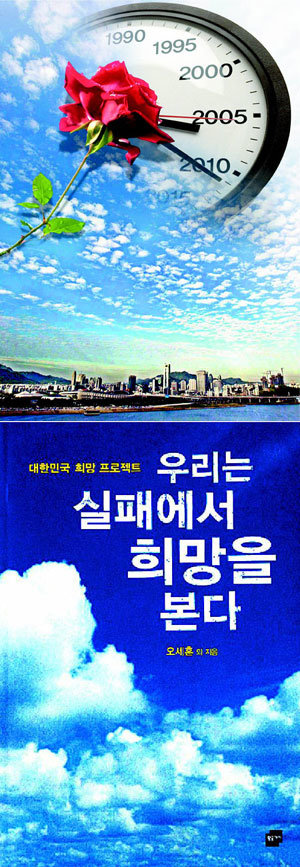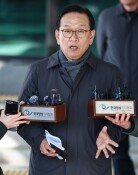Taking Hope in Failure

The winter of 1979 in England was a pathetic one. Garbage lined the streets and fire trucks and ambulances were left abandoned. Corpses deprived of proper funerals cluttered an alley in Liverpool.
It was the labor strike. England was festering like a swamp and the government had nothing to say about it. The English call it the Winter of Discontent.
The Winter of Discontent dragged itself throughout the 1970s. Plunging oil prices, accumulating deficits, endless union strikes, rising unemployment, and finally, in 1977 England hit bottom when she reached out to the International Monetary Fund in 1977. It was an absolute crisis for Great Britain.
Professor of politics at Soongsil University, Kang Won-taek, finds the first crisis factor in the lack of leadership. Political leadership which couldnt resolve interest conflicts, leadership that couldnt recognize the crisis for what it was, and the irresponsible labor unions wading in their own interests. Kang stresses that, We have much to learn from Prime Minister Margaret Thatchers daring reforms in the 1980s that conquered the crisis.
This book illustrates the many failure and success stories of countries like England, Germany, France, China, Japan, Latin America, Ireland, Netherlands, Finland, and others. Eight experienced professionals from each field have collaborated in the making of the book- authors Prof. Kang Won-taek, lawyer Oh Se-hun, and professors Lee Yeong-jo, Kim Ho-gi, Park Cheol-hui, Jeong Jong-ho, Lee Nam-ju, and Lee Jae-seung. The objective is for Korea to learn from each nations glory and misery in modern history.
Prof. Jeong Jong-ho looks back on Chinas record, contrasting the faults of Mao Zedongs rapid revolution with Deng Xiaopings gradual one. Mao Zedong sacrificed the economy for ideology, whereas Deng Xiaoping carved out a bounding economy based on liberality and creativity. Jeong writes, The moral of the story is that objective evaluation overrules complete negation of the past, and that steady strategies are the heroes.
Japans story of a bitter economic slump in 1990 that swallowed its campaign for international economic supremacy in the 1980s is also indispensable.
Lawyer Oh focuses particularly on a country that used to be the runt of the European litter up until the early 1980s; Irelands rags-to-riches story. The process of the Tripartite Commissions sacrificial efforts to achieve economic prosperity through a united voice that cried for freedom and foreign capital is examined.
The authors cite policies for a strong Korea through these illustrative examples. Some that are mentioned: reinforcing competitiveness with active competition, confident and practical foreign policies, the development of soft power, the introduction of productive welfare from creating jobs, guaranteed rights in the information age, and realistic and systematic preparations for unification.
Lee Jae-seung specifically emphasizes fostering talent through competition. The gist of his argument is that excessive equality may turn out substandard work forces, so please dont kill off Seoul National University, but build on it and expand international competitiveness.
They may be foreign cases, but in the end, were seeing Korea. Each composition is short and make for an easy read, but they demand serious thoughts from the reader. They remind us that the trivial mistakes of here and now can curb the vast flow of Koreas future history. History is a strict teacher.
Kwawg-Pyo Lee kplee@donga.com







